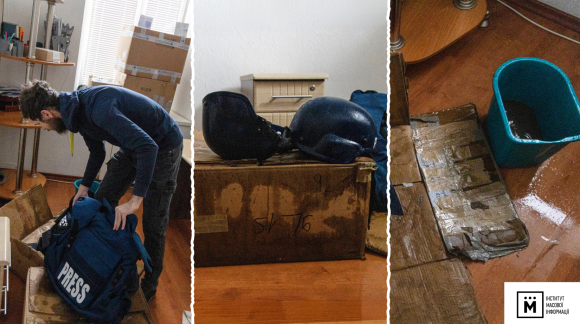In Ukraine, politics has long been fractious. It’s an environment where politicians seek to influence the press and political bloggers actively spar with their opponents on Facebook. In some cases, these conflicts have spilled over into harassment, as Kyiv Post reported.
But new documents obtained by the Kyiv Post suggest that not all press or media commentary in favor of former President Petro Poroshenko was authentic.
Rather, during Poroshenko’s 2014-2019 term in office, his allies regularly paid media outlets for favorable coverage and directed smear campaigns against his critics on social networks.
All parties that could be reached denied participating in these activities.
Poroshenko’s spokespeople didn’t reply to a request for comment. Volodymyr Gorkovenko, head of the media department in Poroshenko’s administration, denied paying for news coverage.
The documents, allegedly found in the presidential administration after Poroshenko left office in May, relate to the administration’s unofficial information campaigns in 2015 and 2016.
They list budgets for Ukrainian television channels, print media, websites and radio stations, which received money to publish paid articles as news. This practice is widespread in Ukraine and known in the local parlance as “jeansa.”
The documents also describe efforts to recruit political experts to spread opinions beneficial to Poroshenko and his allies while posing as independent commentators.
For example, the documents indicate that $1 million — most of it in cash — were paid to seven radio stations during the 2015 local election campaign for “being featured in news segments.”
Media outlets mentioned in the budget also denied getting paid to print “jeansa.”
However, the Kyiv Post found on their websites stories that were listed in the documents as “jeansa” planned for publication.
A separate group of political consultants worked to form a network of pro-presidential bloggers meant to flatter the president and curb the negative impact of political scandals online, according to one such consultant who talked to the Kyiv Post.
Together, the documents and the former consultant’s account of her work offer a rare window into one of the endemic problem of Ukrainian politics: candidates and politicians paying off media, experts and commentators for favorable coverage.
Media plans
In mid-November, the Kyiv Post obtained documents that were allegedly discovered in an office formerly occupied by Gorkovenko.
The documents appear to be a part of an unofficial media plan. They suggest that the president’s team paid media off-the-books and instructed them what to write and whose opinions to cite.
For example, the papers state that Argumenty I Fakty (aif.ua), a popular Ukrainian newspaper, received $2,100 for an article published on Sept. 30, 2015 and the same amount for another article published on Oct. 21, 2015. The documents specify that the first story was titled: “How to lose Ukraine?”.
A representative of the paper openly told the Kyiv Post that “it was probably a paid story.”
The documents mention at least six other newspapers receiving money for paid content – Silsky Visti, Komsomolska Pravda (Kp.ua), Ukraina Moloda, Gazeta Po Ukrainsky (gazeta.ua), Commentaries, Fakty i Komentary (fakty.ua), and Segodnya. At the time, they were among the most popular newspapers in terms of circulation.
Segodnya, a popular daily that stopped its print run in September, was the only newspaper on the list that published the stories as advertising, although they were dubiously marked as “Relevant” (“Aktualno” in Ukrainian), a practice widespread in the Ukrainian media. The paper allegedly received Hr 100,000 ($4,400) for running two stories like that in September and October 2015. Segodnya is part of the media holding of billionaire oligarch Rinat Akhmetov.
The documents also indicate that $1.1 million was spent on off-the-books payments for jeansa on radio stations prior to the local elections held on Oct. 26, 2015.
Seven popular radio stations received $874,859 in six weeks prior to the 2015 local elections as payment for “jeansa” in the news. This money was paid for 1,134 placements in the news segments. The documents do not specify what the content was.
Additionally, five of these stations received $277,547 for regular political ads during the same period. The document specifies that most of it was paid in cash.
Representatives of Hit FM, one of Ukraine’s leading radio stations, told the Kyiv Post that paid news items are usually bought before the elections and are sold together with commercial material.
Gorkovenko denied paying media off-the-books and denied that he left any documents in his office.
Kyiv Post

